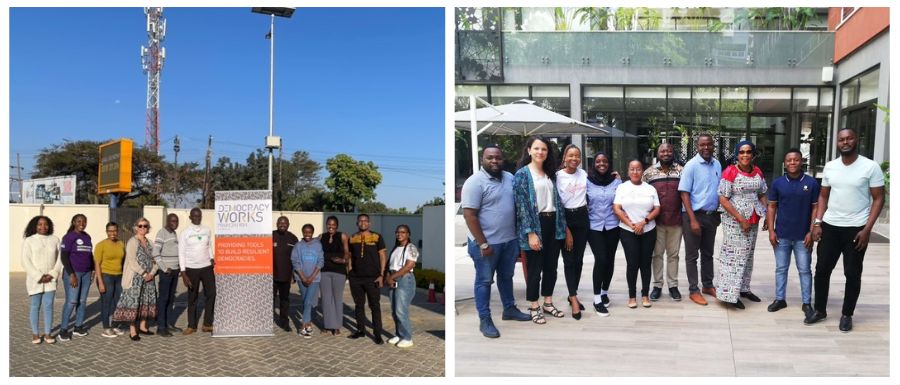In June and July, 2023, ALDA Secretary General, Mrs. Antonella Valmorbida and the Head of ALDA Middle East & Africa Unit, Ms. Giulia Sostero, were respectively in Zambia (Africa) and in Tanzania (Africa) for the Southern Africa National Level Multi-Stakeholder dialogues, organised by Democracy Works Foundation within the framework of the Charter Project Africa.
The Charter Project Africa is aimed at supporting the African Union member states fulfilling their commitments as outlined in the African Charter on Democracy, Elections and Governance (ACDEG). It builds connections between citizens and civic society, analysing the ACDEG’s role in achieving positive change.
The project, led by the European Partnership for Democracy, encourages the use of civic technology to boost citizen voices, particularly those of underrepresented groups. To achieve this, the project offers both financial and technical resources in the form of grants, expertise, and networks to initiatives in democracy at national level in 11 countries, as well as at the regional and continental levels.
Charter Project Africa encourages the use of civic technology to boost citizen voices, particularly those of underrepresented groups
The Southern Africa National Level Multi-Stakeholder dialogues which took place in Zambia and Tanzania are part of a series of events that aim to bring together stakeholders from civil society, government, private sector, regional institutions and the African Governance Architecture (AGA) to reflect on the urgency of adhering to the AU’s shared values instruments, in particularly the ACDEG, and facilitate dialogue, cooperation and synergies among stakeholders.
As a member of the EPD, ALDA participated in two training sessions. The first one took place in Zambia on June 29 & 30, 2023, and was attended by ALDA Secretary General, Mrs. Valmorbida, while the second was carried out in Tanzania on 5 & 6 July, 2023 and saw the participation of Ms. Sostero.
Mrs. Valmorbida and Ms. Sostero discussed the added value of citizens participation at the local level, answering key questions related to the main topics of the project. Additionally, they delivered training for trainers on developing effective advocacy and engagement strategies for democratic governance which consisted in knowing the actors active in the continent, mapping the civil society actors and their respective capacities and mapping the public sector capacities.
The two national multi-stakeholder dialogues represented an excellent opportunity to better understand the situation and the challenges in the continent and to start a path of cooperation to promote and strengthen democracy in Africa.
